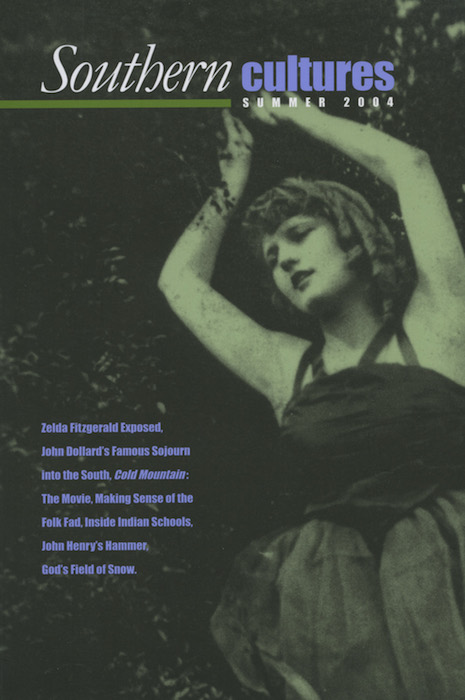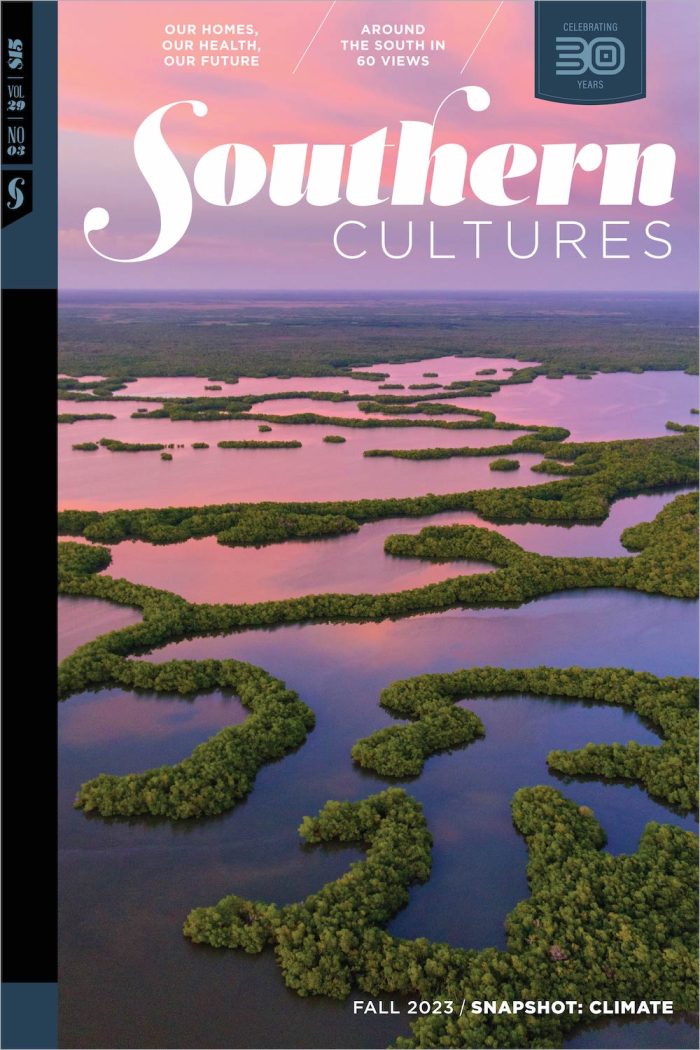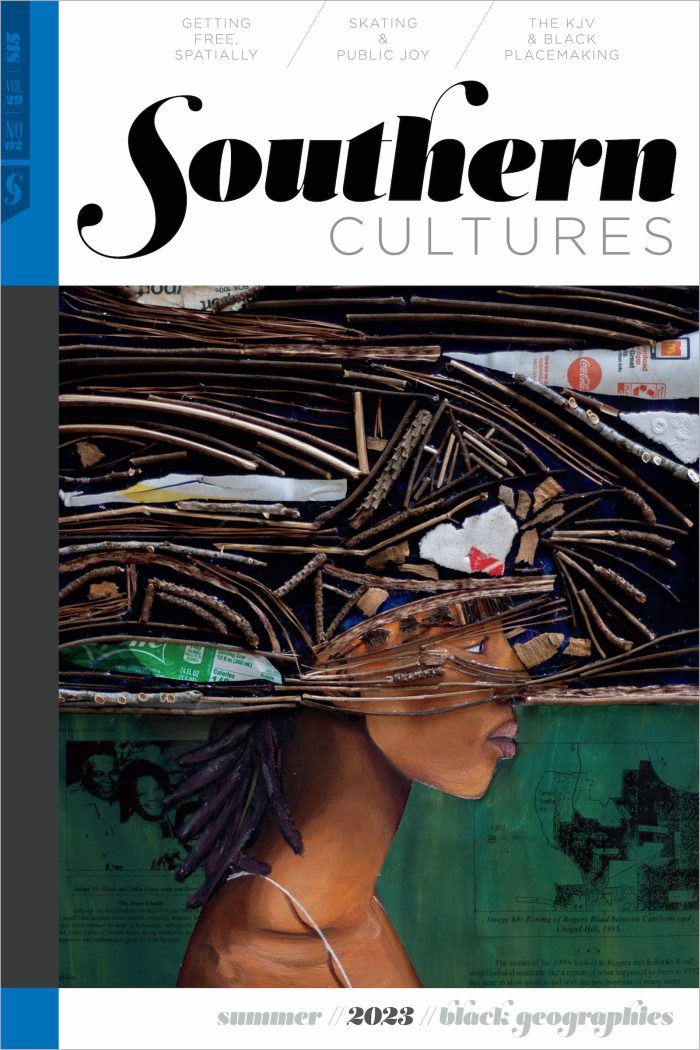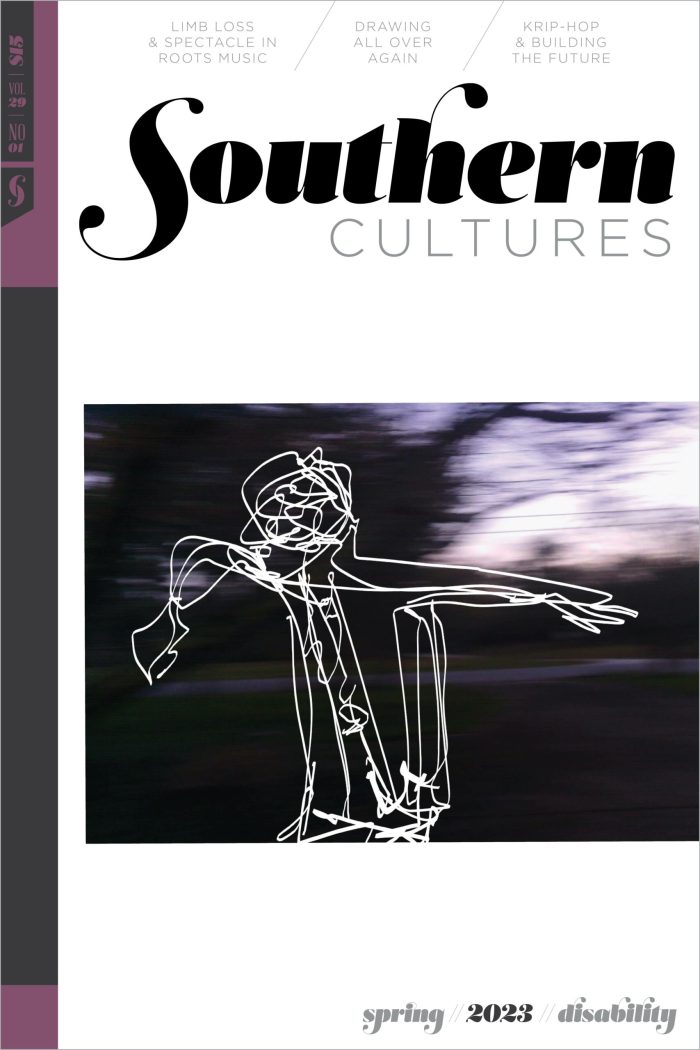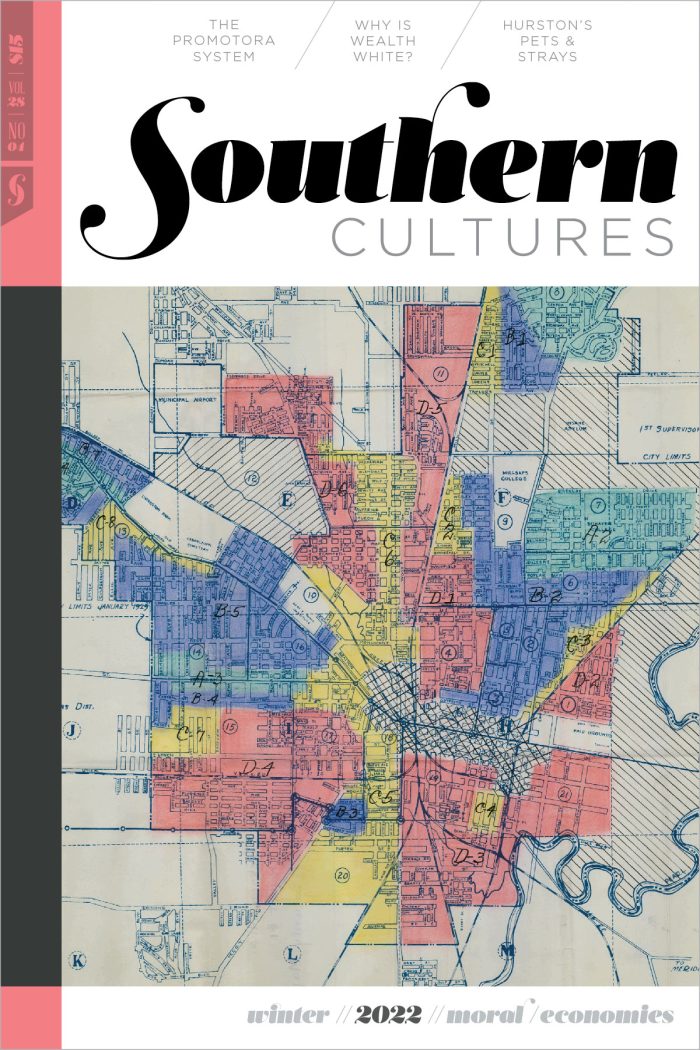BUY ACCESS
by Harry L. Watson
“Some southern traditions don’t pretend to be liberating.” Readers sometimes ask how we at Southern Cultures find essays whose themes fit neatly together. I’d like to say that we have a stable of faithful geniuses who turn out matched sets of literary gems on regular orders, but my nose would grow. In truth, we’re mostly dependent on »
BUY ACCESS
by William R. Ferris
“That whole church would be a riot of the most beautiful songs. To be in the middle of it was for me an ecstasy, one of the greatest experiences of my life. I found it heavenly and unbelievably delightful, freeing and liberating. An odd thing about it was that the singing would never completely die »
BUY ACCESS
by Linda Wagner-Martin
“There are few more memorable wives in twentieth-century American culture than Zelda Sayre Fitzgerald, who was married to the successful young author F. Scott Fitzgerald.” There are few more memorable wives in twentieth-century American culture than Zelda Sayre Fitzgerald, who was married to the successful young author F. Scott Fitzgerald in 1920. His first novel, This »
BUY ACCESS
by Benjamin Filene
“Think of the tale of Bob Dylan going electric at the 1965 Newport Folk Festival and an enraged Alan Lomax trying to pin Dylan’s manager to the ground while Pete Seeger hunted for an ax to cut the cables.” After O Brother, Where Art Thou? spurred a surge of interest in all things folk, I got calls »
BUY ACCESS
by Lynn Powell
“I saw God, my son once told me. He lives in a field of snow. What could you see? Just snow. And footprints.” “Aspiration”Chattanooga, Tennessee Farther south they call it hog jowl. Up north they call it salt pork. But we called it streaked meat—
BUY ACCESS
by John Douglas
“John Henry and his shaker apparently kept hammering and drilling, hour after hour, while the steam-powered drill got tangled up in the hard rock. Years later, a hammer with the initials ‘J. H.’ was found in the tunnel.” One January day in 1968, a bunch of us lit out from Westminster, Maryland, and headed down »
BUY ACCESS
by John Douglas
It’s hard to believe, but one of the puzzles that early-twentieth-century folklorists spent time sorting out was whether John Henry and John Hardy were the same man. It’s hard to believe, but one of the puzzles that early-twentieth-century folklorists spent time sorting out was whether John Henry and John Hardy were the same man. John »
BUY ACCESS
by John Douglas
Today, the community of Talcott, West Virginia, bases its fledgling tourism industry on John Henry. Today, the community of Talcott, West Virginia, bases its fledgling tourism industry on John Henry. “We really believe the contest with the steam drill happened here,” says John “Bill” Dillon, a retired Talcott postmaster and local historian. In 1972 the »
BUY ACCESS
by Malinda Maynor,
James Arthur Jones
“But I could walk in the classrooms, and I could name ninety percent of those kids’ parents, because I taught a lot of their parents. If a problem surfaced, I said, ‘Do you want me to talk to your mother and daddy about you?'” Robeson County, North Carolina’s public schools, like many other school districts »
BUY ACCESS
by James C. Cobb
In addition to a common preference for a less hurried and direct approach to business and commerce, given their “inherited paternalism,” who better than the descendants of the South’s old slaveholding class to commiserate with their kindred spirits south of the border about the intricacies of sweating peons and Jamaican labor without breaking a sweat »
BUY ACCESS
by Helen Bullitt Lowry
The Southerners who have gone North have had to drop their drawl and their restful afternoons and the ceremonious manners their mothers taught them, because the North thinks such manners an affectation in business hours. They have had to become Go-Getters and some have become Babbitts of the worst order. This is the paradox of »
BUY ACCESS
by Edward D. C. Campbell
“This is a world in complete turmoil — a civilization falling to pieces — and one seldom so strongly presented in Civil War films. And yet, in the end, there is a regeneration of southern family and community.” In 1961 the Library of Congress published a filmography of nearly nine hundred motion pictures produced since »
BUY ACCESS
by Cary Fowler
University of North Carolina Press, in association with the Center for Documentary Studies, 2002. Sodom Laurel Album takes its name from an isolated North Carolina mountain-hollow community of ramshackle homesteads, deteriorating barns, worn-out tobacco fields, and tough, “ordinary” people. Rob Amberg could have breezed in for a photo-shoot, taken a few stereotypical or even romanticized shots »
BUY ACCESS
by Melton Alonza McLaurin
Beacon Press, 2003. Summer Snow is an intriguing, slender volume, its nature captured by its subtitle. A sometimes strange mixture of autobiography, reflective personal essays, a dash of comparative literature, and occasionally fiction, it is entertaining, thought provoking, and at times enlightening. In general, the most satisfying pieces in the collection are those in which Trudier »
BUY ACCESS
by S. Willoughby Anderson
W. W. Norton, 2003. Lunenburg—a tiny grouping of houses and farms southwest of Richmond near the North Carolina border—served as the unlikely host to Virginia’s biggest media spectacle of 1895. For a few months in the summer and fall of that year, the murder of Lucy Jane Pollard topped coverage of the increasingly controversial Populist »
